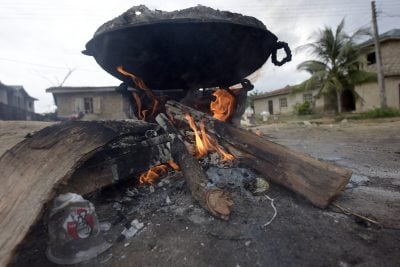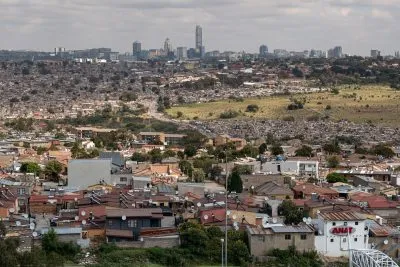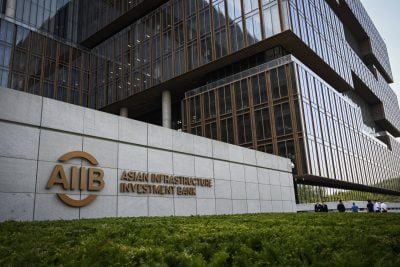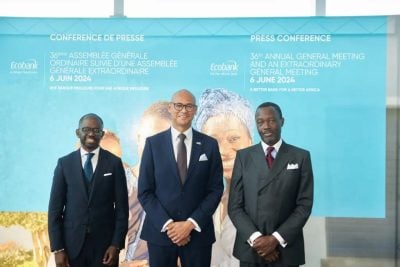
The African Risk Capacity Group (ARC Group) was formed by the African Union in 2012 as a specialised agency to help strengthen the continent’s disaster risk management systems through innovation and solidarity. The group oversees two entities, ARC Agency and ARC Ltd. The former, in a similar vain to an advisory platform, works with its clients, 34 African member states, to provide general oversight and supervising development of ARC capacity and services. ARC Ltd carries out commercial insurance functions of risk pooling and risk transfer in accordance with national regulations for parametric weather insurance.
Since the organisation was founded, 62 insurance policies have been signed, representing $101.7m in premiums for a cumulative insurance coverage of $722m, covering 72m vulnerable people in participating countries. The coverage protects farmers’ livelihoods, and hence food security, against the impact of climate change. Ibrahima Cheikh Diong joined the ARC Group as its new director general in September last year and anticipates that ARC’s role and remit will expand widely over the next few years.
“We are focused entirely on helping our 34 member states plan, prepare and respond to climate change-related disasters (drought, flood, tropical cycle, etc),” says Diong.
“On the planning side, we strongly believe that a country needs to have clear and concise visibility on its risk profile vis-à-vis disasters and adequate national disaster risk management strategies. That visibility allows a nation to decide which part of the risk you will assume, as part of your national budget, and which risk you want to transfer through insurance arrangements. The second step of our involvement is to assist countries prepare before disaster hits.”
That involves having in place the adequate coordination mechanisms and technical capacities to be able to intervene in a manner that is cohesive and structured. Also crucial is to ensure a rapid response and to have necessary finance to act decisively and in a timely fashion.
“Unfortunately, when disasters strike on the continent, while you wait for the humanitarian agencies and the donor community to come and support you with funding, life can be lost, particularly in vulnerable communities.”
Diong feels that ARC can play a central role in Africa’s growth and development as the impact of climate change worsens. He is repositioning the institution as a development agency, and is aiming to diversify product offerings, including developing innovative financing that responds to demand, mainstreaming gender throughout the work of ARC and telling the positive stories of the affected communities.
He also hopes to bring on board more member states and mobilise funding from African governments and stakeholders to support the rapid growth of the organisation. Currently, funding comes primarily from external donor partners.
Different layers of risk
As a result of the pandemic, Diong says that the institution will widen its remit to not only cover climate-change related disasters but also outbreaks and epidemics. He intends to work closely with African DFIs such as the African Development Bank, Afreximbank, Trade and Development Bank, BOAD and EBID in West Africa to develop new solutions and a sustainable risk management response to climate change and disasters.
He aims to co-develop products to provide more options to ensure countries are better prepared to respond adequately and protect vulnerable communities.
“There are different layers of risk in Africa and with our partners we can develop instruments that can address these risks and provide our member states with innovative financing solutions. For example, with the African Development Bank and IFAD, we have launched the African Disaster Risk Financing (ADRiFI) programme aimed at providing risk profiling and premum financing support to African countries.”
Has Covid relegated the climate emergency on the policy agenda? On the contrary, he argues, it has heightened the need for having early warning measures in place to help mitigate its effect. One of the most important roles is to ensure that member states take disaster risk management more seriously from a public policy perspective and address risks through policies and budgetary measures.
Diong feels that there is a critical need to build capacity and knowledge around climate change and its impact, and aims to work more closely with African academic and research institutions to build evidence-based insights that will provide input into their own research and help them offer better technical solutions tailored to their country or region.
Responding to disaster
What happens when disaster hits? ARC has traditionally covered disaster risk relating to agriculture and agriculture output, so insurance payouts support food security as well as the livelihoods of farmers and communities. Once a disaster is categorised as such and pre-agreed metrics are reached, an “attachment point” triggers a pay-out from the insurance company to the government. Disbursing funds generally follows a similar model.
“ARC is all about transparency and accountability,” says Diong. “Once an insurance pay-out is made, together with the recipient country, we agree to set up a dedicated account where the funding is transferred and we monitor its release to the targeted communities. It’s not something that is lumped into the public purse.”
Diong, a former senior investment and development banker, a former high level government official in Senegal, and a Sinophile who speaks fluent Mandarin, is excited about the opportunity to strengthen Africa’s response to climate change and other perils through ARC and smart and strategic partnership. He’s looking ahead to COP26 in November as an opportunity to push practical, well-thought-through adaptation and resilient solutions for Africa.
“Climate change is about addressing adaptation, mitigation and resilience together. ARC is extremely strong in the resilience arena while fully exploring adaptation solutions to better protect the communities of our member states. We want to work with ministers of finance, for example, to raise green bonds and give them the resources to put in place mechanisms around adaptation and mitigation. They can leverage on our partnerships, our knowledge and our networks.
“But if we go to COP as ARC and as African countries, it’s because climate change and disaster risk management needs international solidarity. We may not be the main cause of climate change but we are disproportionately affected by it. It’s the time to underscore again the importance of international solidarity to build resilience. We will therefore call for the establishment of a sizeable African Disaster Risk Financing Initiative to help strengthen Africa’s resilience.”
Want to continue reading? Subscribe today.
You've read all your free articles for this month! Subscribe now to enjoy full access to our content.
Digital Monthly
£8.00 / month
Receive full unlimited access to our articles, opinions, podcasts and more.
Digital Yearly
£70.00 / year
Our best value offer - save £26 and gain access to all of our digital content for an entire year!
 Sign in with Google
Sign in with Google 



